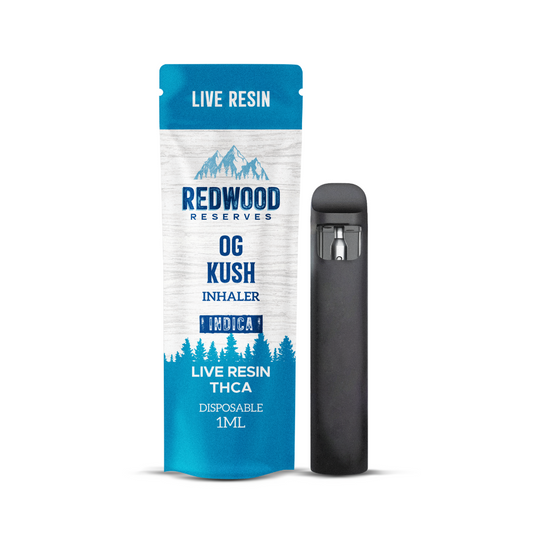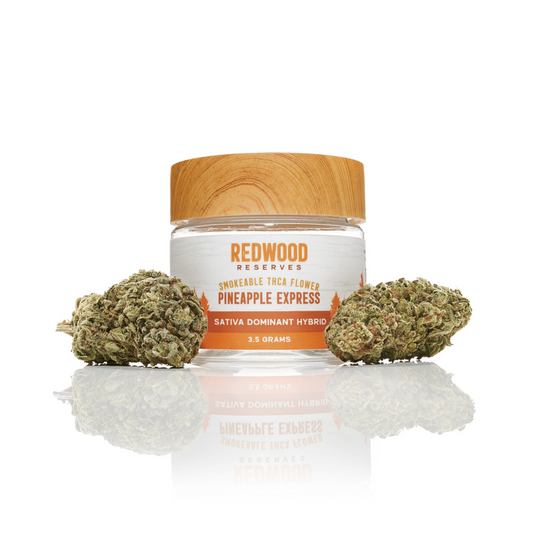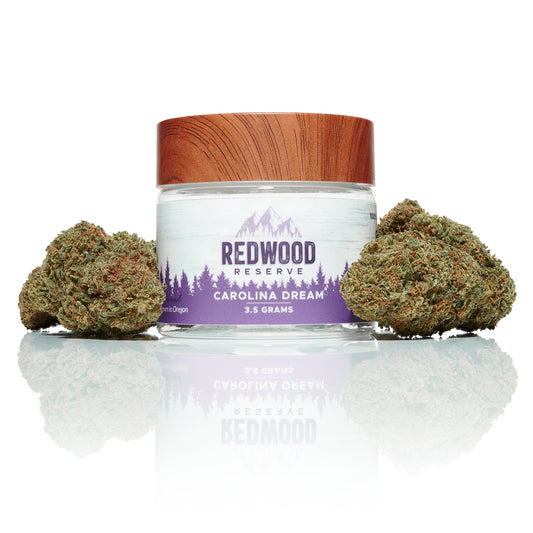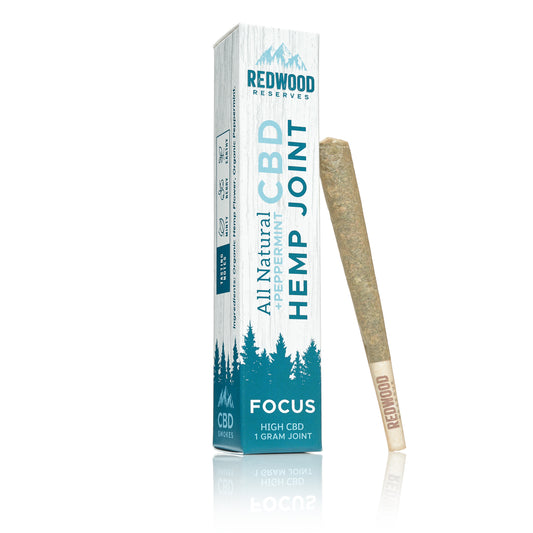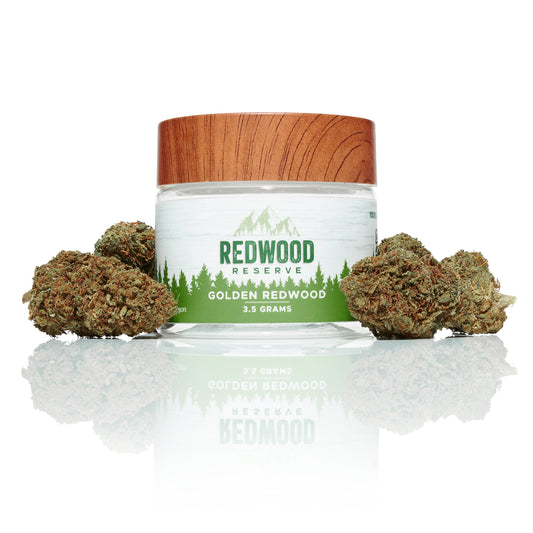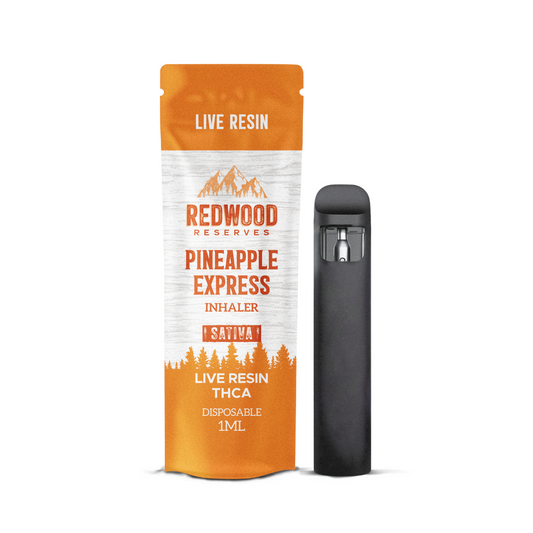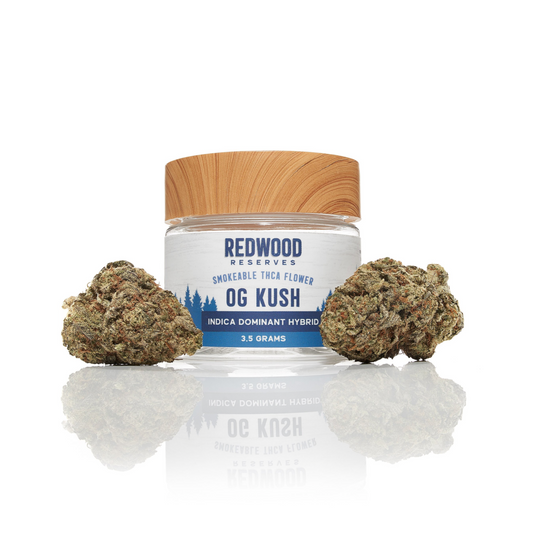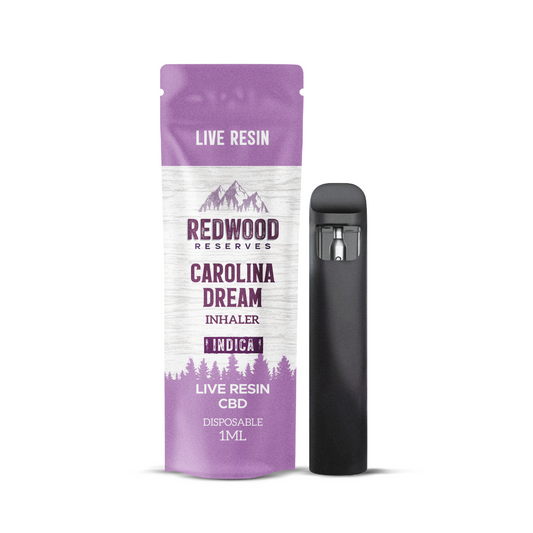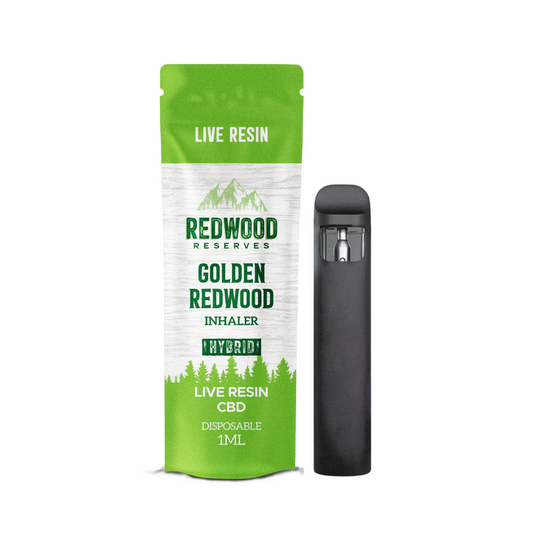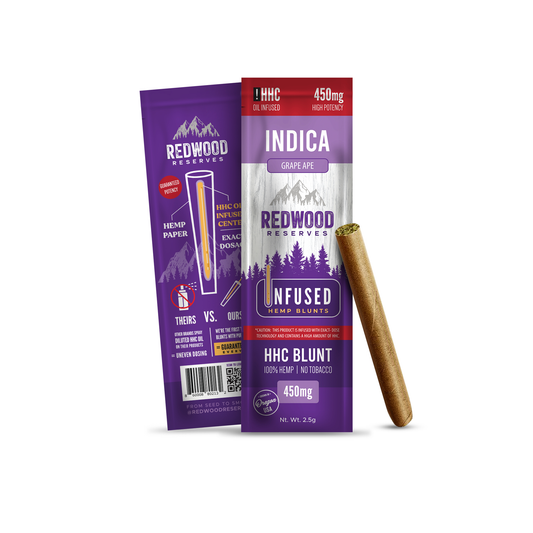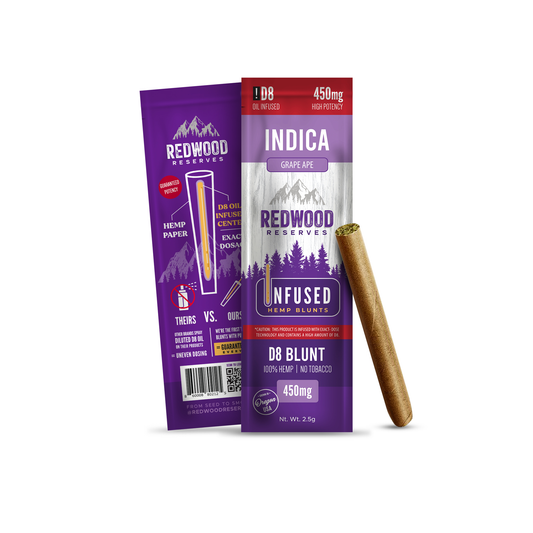Exploring CBD: A Solution for Smoking Cessation
Quitting smoking is a challenging journey. Many people struggle with cravings and withdrawal symptoms, and traditional methods don't always work for everyone.
Enter CBD, a game-changer in natural smoking cessation. Known for it's calming properties, CBD has gained worldwide attention for many of it's potential benefits.
But can CBD really help you quit smoking? Reviews and studies suggest so. Users report experiencing less nicotine cravings and minimal withdrawal symptoms when weaning themselves off tobacco using CBD cigarettes. That's because CBD interacts with our bodies endocannabinoid system, the large network of receptors in our bodies that target everything from cravings to pain relief.
The main question many people ask when making the switch to CBD smokes is a simple one to answer: "Can you get addicted to CBD?"
According to the World Health Organization, CBD is not addictive, unlike nicotine. This make CBD smoking cessation a better alternative for those looking to quit smoking naturally. CBD cigarettes help you breeze through the initial withdrawal period with minimal symptoms, and provide a non-addictive smoke if the mood ever strikes.
CBD products come in various forms, like vapes, gummies, and cigarettes. Each offers a different experience, and choosing the right one depends on personal preferences.
Is CBD the solution for you? Let's explore its potential in smoking cessation.
Understanding Smoking Addiction and the Challenge of Quitting
Smoking addiction is complex and difficult to overcome. Nicotine, the main addictive substance in cigarettes, creates dependency. This makes quitting a battle that can seem impossible to overcome.
The brain becomes reliant on nicotine to release dopamine, a chemical linked to pleasure and reward. This process fuels the cycle of addiction. When smoking is stopped, withdrawal symptoms arise, including:
- Irritability
- Anxiety
- Strong cravings
- Difficulty concentrating
These symptoms often lead to relapse, making smoking cessation a daunting task. Emotional and behavioral factors, like stress and certain environments, can trigger the urge to smoke as well.
Addressing these triggers is key to successfully quitting. Many turn to nicotine replacement therapies or prescription medications. However, these don't work for everyone.
CBD products, like hemp cigarettes, can help manage withdrawal symptoms and reduce cravings. This natural compound may offer hope to those struggling to quit smoking. By addressing both the physical and psychological aspects of addiction, CBD could provide the support needed to break free from nicotine's grip.
What Is CBD? An Overview
CBD, short for cannabidiol, is a compound found in cannabis plants. Unlike THC, CBD is non-psychoactive, which means it doesn't cause a high. This makes it a great option for medicinal and therapeutic use.
CBD interacts with the body's endocannabinoid system. This system plays a role in regulating mood, stress, and overall well-being. Many people use CBD for its calming and anti-inflammatory properties.
Here’s a brief look at how people use CBD:
- CBD Cigarettes: For fast-acting effects that mimic smoking a traditional cigarette
- Gummies: Tasty, discrete edible form
- Joints: Ready to smoke CBD pre rolls for a calming experience
- Vapes: Fast-acting inhalation with a more discreet smell
- Blunts: For a traditional cannabis smoking experience
CBD is extracted from hemp, a variety of cannabis with low THC content. The CBD products on Redwood Reserves website is made from hemp exclusively grown on the Redwood Family Farms for premium seed-to-pack quality. From reducing anxiety to aiding with smoking cessation, CBD offers numerous possibilities for those seeking alternative remedies.
How CBD Interacts with the Body: The Science Behind It
The human body has a complex system known as the endocannabinoid system (ECS). This system helps regulate various physiological processes, including mood, pain, and appetite. CBD interacts with the ECS by influencing its receptors.
CBD indirectly affects the CB1 and CB2 receptors in the ECS. These receptors are primarily responsible for managing inflammation and neuroprotection. Unlike THC, CBD does not bind directly to these receptors.
Research suggests that CBD can help balance neurotransmitters, such as serotonin. This can contribute to a stable mood, potentially reducing cravings associated with smoking. CBD’s effects on neurotransmitters make it useful in managing stress.
Here's how CBD interacts with the body:
- CB1 Receptors: Affect the central nervous system
- CB2 Receptors: Influence the immune system
- Neurotransmitter Balance: Impacts mood and stress responses
by The New York Public Library (https://unsplash.com/@nypl)
By modulating the ECS, CBD could offer therapeutic benefits, helping those who wish to quit smoking. While the science continues to develop, early findings support its potential role in smoking cessation.
CBD for Anxiety and Stress: Addressing Triggers for Smoking
Anxiety and stress often drive people to smoke. These emotional states can trigger cravings and complicate the quitting process. CBD's calming effects make it an attractive tool for managing these feelings.
CBD influences how the brain responds to stress. By impacting serotonin receptors, it promotes a sense of calm. Reduced anxiety may diminish the urge to smoke, breaking the cycle of stress-induced cravings.
Many studies support CBD's role in anxiety reduction. Participants often report feeling more relaxed and less stressed after using CBD cigarettes. This can lead to less reliance on smoking as a coping mechanism.
Consider these benefits of CBD cigarettes for anxiety and stress:
- Promotes Relaxation: Enhances feelings of calm
- Reduces Anxiety: Lowers stress-related symptoms
- Supports Mood Stability: Helps maintain emotional balance
The short version is that by addressing anxiety and stress, CBD helps tackle key triggers for smoking. This approach can aid those on their journey to quit smoking for good.
Can CBD Help You Quit Smoking? What the Research Says
Scientific interest in using CBD for smoking cessation is growing. Several studies suggest it might be effective. CBD may help reduce cravings and ease withdrawal symptoms.
The way CBD interacts with the body provides insight. It impacts the endocannabinoid system, which regulates mood and stress. This interaction might reduce nicotine cravings and support quitting efforts.
Research has shown promising results. In one study, smokers using CBD inhalers reduced their cigarette intake by 40%. These findings highlight CBD's potential role in decreasing nicotine dependence.
Moreover, CBD could ease withdrawal symptoms. Many users report less irritability and anxiety when using CBD during the quitting process. These effects might help individuals stick to their cessation goals.
Here's why researchers are optimistic about CBD:
- Reduces Nicotine Cravings: Potentially lowers desire for cigarettes
- Eases Withdrawal Symptoms: Mitigates irritability and anxiety
- Promotes Overall Well-being: Supports a healthier lifestyle

Continued research is needed to confirm these findings. However, preliminary evidence suggests that CBD could be a valuable tool for those looking to quit smoking. It's essential to consider individual responses and consult healthcare providers before starting CBD for this purpose.
CBD to Quit Smoking Reviews: Real User Experiences
Reading real user experiences can offer valuable insights. Many individuals share their journey of quitting smoking with the aid of CBD. These personal stories highlight CBD's potential benefits.
Some users find immediate relief from cravings. They report a reduced need to reach for a cigarette when using CBD. This change helps them stay committed to quitting.
Others describe CBD's calming effect. By alleviating stress and anxiety, CBD may help manage triggers that typically lead to smoking. This outcome can be crucial during stressful days.
There are diverse opinions on CBD's forms for smoking cessation. Some prefer CBD oil for its flexibility in dosage. Others might find CBD edibles more convenient for consistent intake.
The following highlights common themes from user reviews:
- Craving Reduction: Users often feel less inclined to smoke
- Stress Relief: CBD helps manage stress and anxiety
- Variety of Forms: Oils, edibles, and vapes are popular choices
Not all experiences are positive, though. Some users do not feel any difference in their cravings or stress levels. This variability highlights the importance of finding the right product and dosage.
Despite mixed results, many people praise CBD for at least offering a new option. For smokers willing to experiment, CBD appears to be worth trying. The quest for the best method may lead to a healthier, smoke-free life.
CBD and Nicotine: Comparing Effects and Addiction Potential
CBD and nicotine have distinct effects on the body and mind. Nicotine is well-known for its addictive nature. It's the primary reason for the dependency seen in smokers.
In contrast, CBD cigarettes are not addictive. This difference makes CBD a safer alternative for those wanting to quit smoking. Users do not experience withdrawal when reducing CBD intake.
Nicotine affects the brain's reward system. It temporarily boosts mood and energy, reinforcing its use. However, this also leads to addiction and withdrawal symptoms when quitting.
Conversely, CBD interacts differently with the brain. It may help balance neurotransmitters, promoting calmness without inducing addictive behavior. Here are some key points:
-
- Nicotine:Addictive and leads to dependency
- Stimulates the brain's reward system
- CBD:Non-addictive and no dependency
- Balances neurotransmitters
Understanding these differences is crucial for those exploring alternatives. CBD offers a non-addictive option, providing a potential path to break free from nicotine's hold.
by Obaid Awan (https://unsplash.com/@notobaid007)
CBD Cigarettes, Hemp Cigarettes, and CBD Smoke: Alternatives to Tobacco
CBD cigarettes and hemp cigarettes are an appealing alternative to traditional tobacco products. They offer smokers a similar experience without the addictive properties of nicotine.
These alternatives allow for the familiar ritual of smoking. This can be comforting for those who miss the hand-to-mouth action. CBD cigarettes contain CBD-rich hemp, which provides calmness without nicotine.
Hemp cigarettes are free from tobacco and additives, which appeals to health-conscious individuals. They produce CBD smoke that delivers benefits without harmful chemicals found in tobacco smoke.
For those exploring smoking cessation, understanding these alternatives can be valuable. Both CBD and hemp cigarettes offer a way to satisfy the urge to smoke without harmful effects.
Key advantages include:
- Nicotine-Free: No nicotine, reducing addiction potential.
- Harm Reduction: Fewer harmful chemicals than tobacco.
- Calming Effect: Offers CBD’s calming properties.
Exploring these options can provide a beneficial alternative for those looking to transition away from tobacco while still enjoying the experience.
by Masha Rostovskaya (https://unsplash.com/@mglbv)
Which CBD Is Best to Quit Smoking? Forms, Dosage, and Tips
Choosing the right CBD product to quit smoking involves a few considerations. The form of CBD and dosage play crucial roles in effectiveness.
There are several forms of CBD available, including oils, vapes, gummies, and capsules. Each form has its own benefits and drawbacks, depending on personal preference and lifestyle.
CBD cigarettes for quitting smoking are the most popular choice when exploring CBD for smoking cessation. It's fast-acting effects make it the perfect go-to when the cravings or withdrawal symptoms hit.
When considering which CBD product to use, keep in mind:
- Purpose: Choose based on your lifestyle and cessation goals.
- Concentration: Start low and adjust as needed.
- Convenience: Select forms that fit easily into your routine.
Finding the best CBD for smoking cessation may require some experimentation and patience.
Safety, Side Effects, and Legal Considerations
When using CBD for smoking cessation, safety is a priority. CBD is generally considered safe with a good safety profile. However, users should stay informed about potential side effects and legality.
Common side effects of CBD cigarettes are usually mild and can include dry mouth, dizziness, or changes in appetite. Most people tolerate CBD well, but it's important to monitor your body's response.
Legal status can vary by region, impacting accessibility. It's crucial to verify local laws before purchasing CBD products. Always choose reputable brands to ensure product quality and safety.
Here are some key points to consider:
- Side Effects: Generally mild but should be monitored.
- Legal Status: Check local regulations regarding CBD use.
- Product Quality: Opt for third-party tested CBD products.
Being informed can help ensure a positive experience with CBD.
How to Start: Steps for Using CBD in Smoking Cessation
Initiating your journey with CBD for quitting smoking involves a few strategic steps. Begin by consulting with a healthcare professional, especially if you're on other medications. They can provide guidance tailored to your needs.
Next, select a CBD product that aligns with your lifestyle and preferences. You might consider oils, capsules, or CBD cigarettes. Start with a low dose, allowing your body to adjust, then gradually increase it if needed.
Here are some practical steps to guide you:
- Consultation: Talk to a healthcare provider.
- Product Selection: Choose suitable CBD forms.
- Dosing: Start low and increase as necessary.
Consistent use is vital, so integrate CBD into your daily routine for the best results. Patience and consistency can amplify your success.
Final Thoughts: Is CBD the Right Solution for You?
Considering CBD for smoking cessation? It's essential to weigh the benefits and limitations carefully. CBD shows potential, but individual experiences vary significantly.
Assess your personal needs and health conditions before deciding. Consulting a healthcare provider can help you determine if CBD aligns with your wellness goals.
Ultimately, the choice depends on your situation and comfort level. CBD could be a valuable tool in quitting smoking, but it's essential to approach it with realistic expectations.


